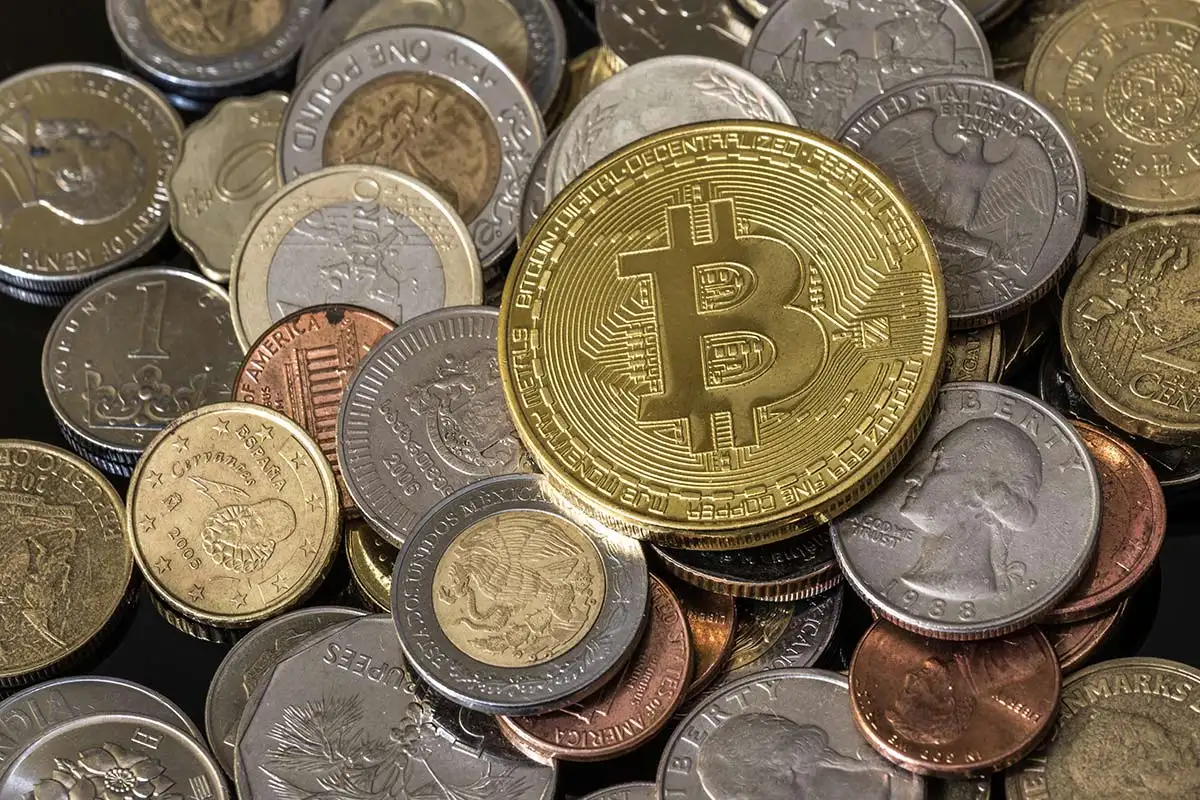
Introduction to Bitcoin:
Bitcoin has become one of the most talked about financial assets of the 21st century. Launched in 2009 by an anonymous entity known as Satoshi Nakamoto, Bitcoin has revolutionized the world of finance, offering a decentralized alternative to traditional currencies. For new investors, Bitcoin can be difficult to understand. This guide will walk you through the basics of Bitcoin, its importance, and how to get started as an investor.
1. What is Bitcoin?
Bitcoin is a digital currency, often called a cryptocurrency, that operates on a decentralized network of computers called a blockchain. Unlike traditional currencies issued by governments, Bitcoin is not controlled by a central authority. Instead, it relies on cryptographic principles and a peer-to-peer network to facilitate transactions.
1.1 The Concept of Decentralization:
One of the most revolutionary features of Bitcoin is its decentralization. This means that no single entity, such as a government or bank, controls Bitcoin. Instead, it is managed by a distributed network of computers, making it resistant to censorship and government interference.
1.2 The Role of Blockchain:
Blockchain is the underlying technology that powers Bitcoin. It is a public ledger that records all Bitcoin transactions. Each transaction is grouped into a block, and these blocks are linked together in a chain, hence the name blockchain. This ensures transparency and security, as every transaction is visible and immutable.
2. How Does Bitcoin Work?
Understanding how Bitcoin works is essential for any new investor. Bitcoin works through a combination of mining, transactions and wallets.
2.1 Bitcoin Mining:
Mining is the process by which new bitcoins are created and transactions are verified. Miners use powerful computers to solve complex mathematical problems, and in return are rewarded with new bitcoins. This process is necessary to maintain the security of the Bitcoin network.
2.2 Bitcoin Transactions:
Bitcoin transactions involve the transfer of value from one wallet to another. When you send bitcoins, the transaction is broadcast to the network, where miners verify it and add it to the blockchain. This process ensures that the same Bitcoin cannot be spent twice, a problem known as double spending.
2.3 Bitcoin Wallets:
To store and manage your Bitcoins, you need a digital wallet. There are two main types of wallets:
- Hot Wallets: These are connected to the internet and are more convenient for daily transactions. However, they are also more vulnerable to hacks.
- Cold wallets: These are offline and provide high security, making them ideal for storing large amounts of Bitcoin.
3. Why Invest in Bitcoin?
Bitcoin has attracted investors worldwide due to its unique features and high profit potential. However, like any investment, it comes with risks.
3.1 Potential for High Returns:
Bitcoin has seen a significant increase in value since its inception. Early adopters have made substantial profits, and many investors see Bitcoin as a way to hedge against inflation and diversify their portfolios.
3.2 Hedge Against Inflation:
Unlike fiat currencies, which can be printed in unlimited quantities, Bitcoin has a fixed supply of 21 million coins. This scarcity makes it a potential hedge against inflation, as its value is not subject to weakness like traditional currencies.
3.3 Increasing Adoption:
As more businesses and institutions accept Bitcoin, its legitimacy and utility are increasing. This increased adoption can increase demand and consequently its value.
3.4 Diversification:
Bitcoin offers an opportunity to diversify your investment portfolio. It is often seen as uncorrelated with traditional financial markets, meaning it can act as a counterbalance during economic downturns.
4. Risks of Investing in Bitcoin:
While Bitcoin offers exciting opportunities, it is also associated with several risks that new investors should be aware of.
4.1 Volatility:
The price of Bitcoin is unusually volatile. It can experience dramatic price swings in the short term, leading to significant gains or losses. Investors should be prepared for this volatility and consider their risk tolerance before investing.
4.2 Regulatory Risks:
Bitcoin operates in a largely unregulated space, but this may change in the future. Governments around the world are still grappling with how to regulate bitcoin, and new regulations could affect its value and accessibility.
4.3 Security Risks:
Although the Bitcoin blockchain is secure, the platforms and exchanges where Bitcoin is bought and sold are not immune from hacking. There have been several high-profile cases of exchange hacks, causing significant losses to investors. Using a secure wallet and choosing a reputable exchange can reduce this risk.
5. How to Buy Bitcoin:
Buying Bitcoin has become more accessible, but understanding the process and choosing the right platform is important.
5.1 Choosing an Exchange:
To buy Bitcoin, you will need to use a cryptocurrency exchange. Some of the most popular conversions include:
- Coinbase: Known for its user-friendly interface, it is ideal for beginners.
- Binance: Offers a wide range of cryptocurrencies and low fees.
- Kraken: Known for its security features and advanced trading tools.
5.2 Setting Up a Wallet:
Before buying Bitcoin, set up a wallet to store your coins. Although many exchanges offer integrated wallets, it is often safer to use an independent wallet, especially if you have large amounts of Bitcoin.
5.3 Making Your First Purchase:
Once you’ve chosen an exchange and set up your wallet, you can make your first purchase. Most exchanges allow you to buy Bitcoin using traditional currencies such as USD, EUR, or GBP. Be sure to check the fees associated with each transaction, as these may vary between platforms.
6. Storing and Securing Your Bitcoin:
Proper storage and security are crucial to protecting your Bitcoin investment.
6.1 Hot vs. Cold Wallets:
As mentioned earlier, hot wallets are convenient but less secure, while cold wallets offer more security. Many investors use a combination of the two: keeping a small amount in a hot wallet for daily use and storing the bulk of their bitcoins in a cold wallet.
6.2 Best Practices for Security:
- Enable Two-Factor Authentication (2FA): This adds an extra layer of security to your accounts.
- Use strong passwords: Avoid using the same password on multiple platforms.
- Back up your wallet: Make sure you have a secure backup of your wallet private keys.
7. Selling Bitcoin:
Eventually, you will want to sell your Bitcoin. The process is straightforward but requires careful consideration of time and procedure.
7.1 Timing Your Sale:
Given Bitcoin’s volatility, the timing of your sales can significantly affect your profits. Some investors choose to hold for the long term, while others may take advantage of rising prices to sell. It is important to have a clear strategy and stick to it while avoiding emotional decision making.
7.2 Selling on Exchanges:
Most exchanges that allow you to buy Bitcoin also enable you to sell it. You can convert your bitcoins to traditional currency or trade them for other cryptocurrencies. Be aware of any fees and tax implications associated with the sale.
8. Future of Bitcoin:
The future of Bitcoin is the subject of much debate. While some see it as the future of money, others believe it is a speculative bubble. Regardless of your opinion, it’s important to stay informed about developments in the Bitcoin space.
8.1 Bitcoin Halving:
Every four years, the reward for mining Bitcoin is halved, an event known as Bitcoin halving. This slows the rate at which new bitcoins are created, which can have significant effects on its supply and demand dynamics.
8.2 Institutional Adoption:
As more institutions start investing in Bitcoin, its legitimacy and value may increase. This can lead to increased mainstream acceptance and integration into the global financial system.
Conclusion:
Bitcoin represents a unique and revolutionary asset that has the potential to change the financial landscape. For new investors, understanding the basics of Bitcoin, its risks, and its opportunities is critical to making informed investment decisions. Although Bitcoin offers high profit potential, it must be approached with caution, a well-thought-out strategy, and a clear understanding of the risks involved. By staying informed and taking a disciplined approach, you can navigate the exciting world of Bitcoin and potentially reap the rewards of this groundbreaking technology.


